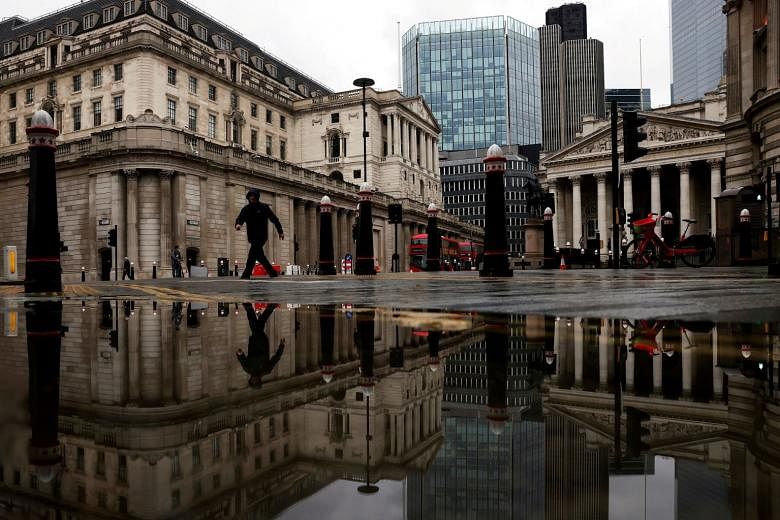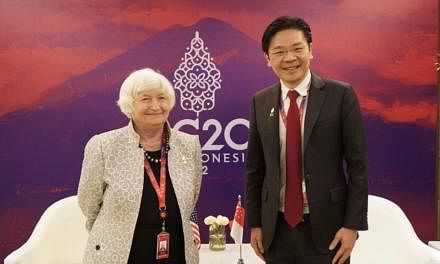LONDON (BLOOMBERG) - British government departments have been told to identify cost cuts, signalling renewed austerity for some public services as Mr Boris Johnson's government tries to repair the fiscal damage inflicted by the deepest economic slump in three centuries.
The Prime Minister told the Cabinet of the demand on Tuesday (April 27), according to a readout of the meeting from his office.
"Departments are being asked to take part in a savings and efficiency review ahead of the spending review later this year," 10 Downing Street said in a statement.
"The purpose is to learn the lessons from the last year in how we can run services more efficiently and ensure that we focus our high levels of spending on our key priorities."
Mr Johnson and Chancellor Rishi Sunak are seeking to restore order to the public finances after spending unprecedented amounts to fight the spread of Covid-19 pandemic and protect businesses and workers from the fallout of three national lockdowns.
The budget deficit in the last fiscal year ballooned to more than £300 billion (S$550 billion), the most in British peacetime.
The Chancellor has already taken some steps to rein in spending.
In a one-year review in November, he slashed the overseas aid budget and froze the pay of some public-sector workers. In March, he announced plans for a six-percentage point hike in corporation tax in 2023.
He also cut a further £4 billion a year from departmental spending, raising the prospect that the austerity policies that characterised the years following the financial crisis will continue for public services outside protected areas such as health, defence and education.
Many economists say the cuts will be hard to deliver, given that Covid-related costs such as re-vaccination and test-and-trace programmes could continue for longer than currently envisaged.
That could mean Sunak is forced to announce further tax increases, possibly as early as the budget and spending review planned for the fall, if he wants to stick to his plan to balance day-to-day spending and revenue by the middle of the decade.







